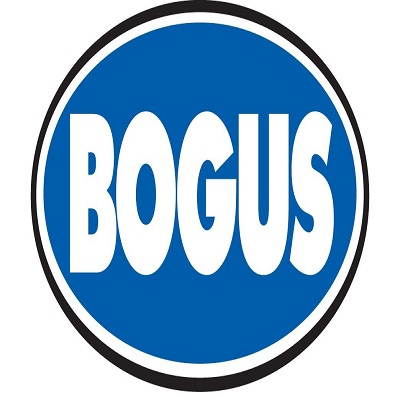VF Corporation Publishes Sustainability & Responsibility Report For Fiscal Year 2022

VF Corporation (NYSE: VFC) has released its latest Made for Change Sustainability & Responsibility report entitled Seizing the Momentum. The report shares the company’s progress toward its science-based targets, product traceability goals, and other social and environmental commitments.
“At VF, our performance-driven culture is grounded in purpose, which leads us to remain sharply focused on delivering consistent business results while also achieving high standards in environmental and social responsibility,” said Steve Rendle, VF’s Chairman, President and CEO. “Our latest Made for Change report demonstrates how we’re making meaningful progress toward our long-term sustainability commitments through the constant pursuit of responsible and profitable growth.”
The company’s fifth Made for Change report details VF’s actions to advance its primary areas of focus: People, Planet and Product, which include topics covering gender parity; community investments; human rights; worker and community development; traceability; climate change; renewable energy; waste and plastic reduction; use of responsibly sourced, recycled and regenerative materials; and the reduction of unwanted chemicals.
The report also highlights how VF and its brands collectively scale and accelerate meaningful progress aligned with our Purpose. Examples of brand initiatives featured in the report include the launch of the Vans® brand’s Sustainability Hub and the unveiling of its new VR3 product line and labeling; and the Timberland® brand’s TimberloopTM takeback program and resale website launched in the U.S.
“VF is acting with urgency in this important moment for social and environmental progress,” said Sean Cady, VF’s Vice President, Global Sustainability, Responsibility and Trade. “In the face of global uncertainty, we are continuing to push forward the programs we’ve been building for years on climate action, product traceability, materials, human rights, and diversity, equity and inclusion.”
Report highlights include:
People:
- Worker & Community Development (WCD): Through its WCD programs, VF provided support to over 248,000 people in FY22 and more than 652,000 unique individuals since the program’s inception, as the company seeks to improve the lives of 1 million people by FY26 and 2 million by FY31.
- Inclusion, Diversity, Equity & Action (IDEA): VF is making meaningful progress toward its aspiration to achieve gender parity globally in director and above positions and 25% representation of Black, Indigenous and People of Color (BIPOC) in director and above positions in the U.S. by FY30. VF reported 41.8% of global female leaders and 18.1% of U.S. BIPOC leaders at the end of FY22.
- Community Impact: VF associates contributed over 167,500 volunteer hours from FY19 to FY22 and VF’s brands provided more than $15.6 million in monetary and product donations in FY21.
Planet:
- VF is making progress against its 2030 science-based greenhouse gas (GHG) emission reduction targets:
- Scope 1 and 2 emissions: As of FY22, VF has achieved 66% of its target of reducing Scope 1 and 2 GHG emissions by 55%.
- Scope 3 emissions: As of FY21, VF achieved 8% of its target of reducing Scope 3 GHG emissions by 30%.
- Renewable Energy: VF made progress toward the completion of the apparel and footwear industry’s largest tax equity investment in FY22 and utilized 34% renewable energy across its direct operations, up from 32% in FY21.
- Waste Reduction: By year-end FY22, VF achieved an average waste diversion rate of 97% in all active company owned – and operated distribution centers.
Product:
- Traceability: VF achieved its goal of publishing traceability maps for 100 of its brands’ most iconic products in FY22. VF continues to expand its traceability program, making progress against its goal to trace five key materials through 100% of the supply chain by FY28.
- Materials: In FY21, 36% of polyester originated from recycled materials, achieving 72% of VF’s FY26 goal to source 50% of its polyester from recycled materials.
- Chemistry: VF removed more than 300 metric tons of nonpreferred chemicals from its supply chain since FY20 through the innovative CHEM-IQSM program. Since the program’s inception in 2016, VF has removed 900 metric tons of nonpreferred chemicals.
VF’s FY22 Sustainability & Responsibility report was prepared in accordance with Global Reporting Initiative (GRI) Standards 2018, Core option; aligned with Sustainability Accounting Standards Board (SASB) Apparel, Accessories & Footwear Standard 2018; informed by the Task Force on Climate-related Financial Disclosures (TCFD); and United Nations Sustainable Development Goals (UN SDGs); and serves as our UN Global Compact (UNGC) Communication on Progress. Unless otherwise stated, all data reported is for VF’s fiscal year 2022.
VF Corporation (NYSE: VFC), a global leader in branded lifestyle apparel, footwear and accessories, today released its latest Made for Change Sustainability & Responsibility report entitled Seizing the Momentum. The report shares the company’s progress toward its science-based targets, product traceability goals, and other social and environmental commitments.
“At VF, our performance-driven culture is grounded in purpose, which leads us to remain sharply focused on delivering consistent business results while also achieving high standards in environmental and social responsibility,” said Steve Rendle, VF’s Chairman, President and CEO. “Our latest Made for Change report demonstrates how we’re making meaningful progress toward our long-term sustainability commitments through the constant pursuit of responsible and profitable growth.”
The company’s fifth Made for Change report details VF’s actions to advance its primary areas of focus: People, Planet and Product, which include topics covering gender parity; community investments; human rights; worker and community development; traceability; climate change; renewable energy; waste and plastic reduction; use of responsibly sourced, recycled and regenerative materials; and the reduction of unwanted chemicals.
The report also highlights how VF and its brands collectively scale and accelerate meaningful progress aligned with our Purpose. Examples of brand initiatives featured in the report include the launch of the Vans® brand’s Sustainability Hub and the unveiling of its new VR3 product line and labeling; and the Timberland® brand’s TimberloopTM takeback program and resale website launched in the U.S.
“VF is acting with urgency in this important moment for social and environmental progress,” said Sean Cady, VF’s Vice President, Global Sustainability, Responsibility and Trade. “In the face of global uncertainty, we are continuing to push forward the programs we’ve been building for years on climate action, product traceability, materials, human rights, and diversity, equity and inclusion.”
Report highlights include:
People:
- Worker & Community Development (WCD): Through its WCD programs, VF provided support to over 248,000 people in FY22 and more than 652,000 unique individuals since the program’s inception, as the company seeks to improve the lives of 1 million people by FY26 and 2 million by FY31.
- Inclusion, Diversity, Equity & Action (IDEA): VF is making meaningful progress toward its aspiration to achieve gender parity globally in director and above positions and 25% representation of Black, Indigenous and People of Color (BIPOC) in director and above positions in the U.S. by FY30. VF reported 41.8% of global female leaders and 18.1% of U.S. BIPOC leaders at the end of FY22.
- Community Impact: VF associates contributed over 167,500 volunteer hours from FY19 to FY22 and VF’s brands provided more than $15.6 million in monetary and product donations in FY21.
Planet:
- VF is making progress against its 2030 science-based greenhouse gas (GHG) emission reduction targets:
- Scope 1 and 2 emissions: As of FY22, VF has achieved 66% of its target of reducing Scope 1 and 2 GHG emissions by 55%.
- Scope 3 emissions: As of FY21, VF achieved 8% of its target of reducing Scope 3 GHG emissions by 30%.
- Renewable Energy: VF made progress toward the completion of the apparel and footwear industry’s largest tax equity investment in FY22 and utilized 34% renewable energy across its direct operations, up from 32% in FY21.
- Waste Reduction: By year-end FY22, VF achieved an average waste diversion rate of 97% in all active company owned – and operated distribution centers.
Product:
- Traceability: VF achieved its goal of publishing traceability maps for 100 of its brands’ most iconic products in FY22. VF continues to expand its traceability program, making progress against its goal to trace five key materials through 100% of the supply chain by FY28.
- Materials: In FY21, 36% of polyester originated from recycled materials, achieving 72% of VF’s FY26 goal to source 50% of its polyester from recycled materials.
- Chemistry: VF removed more than 300 metric tons of nonpreferred chemicals from its supply chain since FY20 through the innovative CHEM-IQSM program. Since the program’s inception in 2016, VF has removed 900 metric tons of nonpreferred chemicals.
VF’s FY22 Sustainability & Responsibility report was prepared in accordance with Global Reporting Initiative (GRI) Standards 2018, Core option; aligned with Sustainability Accounting Standards Board (SASB) Apparel, Accessories & Footwear Standard 2018; informed by the Task Force on Climate-related Financial Disclosures (TCFD); and United Nations Sustainable Development Goals (UN SDGs); and serves as our UN Global Compact (UNGC) Communication on Progress. Unless otherwise stated, all data reported is for VF’s fiscal year 2022.













